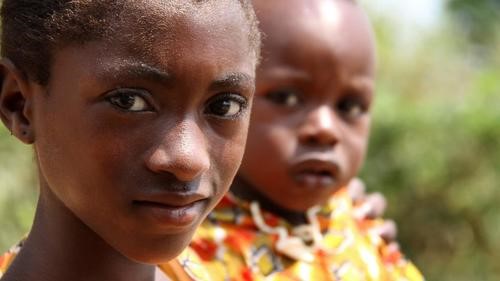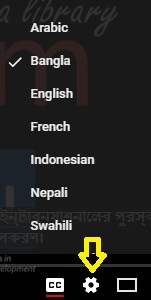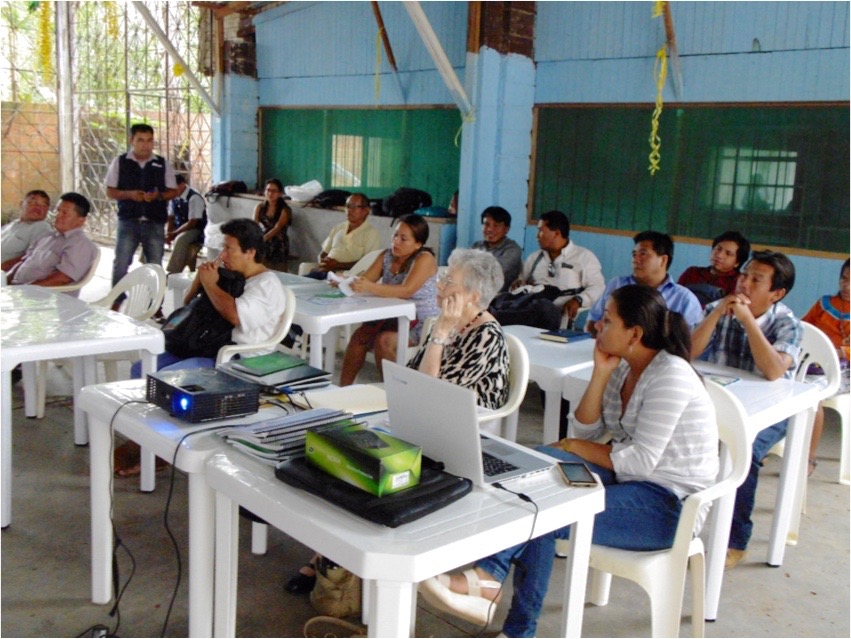I am married with three children, Imani (9.5 years), Baraka (7 years) and Fadhili (5 years).
Malynda: Why did you want to become certified as a Bloom Trainer?
Ruth: I have a keen interest in technology and capacity building and therefore like taking such opportunities. Having worked with Bloom before, I want to train others to use it, to enable them to produce more books for learners. I want to take part in giving the learners the tools that will enable them to become more competent.
Malynda: What do you value most about Bloom?
Ruth: Its simplicity and availability to those who would like to make use of it. The books available in Bloom that can be downloaded for children to read as well as to be translated into other languages.
Malynda: What sort of difference do you see Bloom making?
Ruth: There are writers, young and old, who have stories written or memorized. They do not know how to get these stories to a wider audience. Bloom allows them to make these stories into books and gives them the opportunity to publish them to the Bloom Library. They can also print them out for distribution. After a Bloom training workshop that I led in Mozambique, one of the participants said, “Now I can make my own books!”
Malynda: How did the Bloom Trainer Certification process help you?
Ruth: I learned more about Bloom as I went through the certification process. There were certain aspects that I didn’t know, I had the opportunity to ask and get the answers on how to do things I wasn’t familiar with.
Malynda: How do you feel about the Bloom Trainer Certification process?
Ruth: It is important to master our skills before we start training others. When we go out to train, it is necessary to have the answers to the questions that the learners will ask. The certification process really helps equip us for the task.
Malynda: Who do you anticipate training to use Bloom?
Ruth: A number of the staff in AAB are interested in learning Bloom. I would be glad to train any other groups that have an interest in learning Bloom and using it. Bloom has been gaining popularity and it is my hope that more training opportunities will come up.
Malynda: Tell us about some exciting ideas you have about how Bloom can be used in your context.
Ruth: A few years back AAB conducted research in a number of schools in the Eastern Region of Kenya. The purpose was to find out how some Mother Tongue (MT) books were being utilised in the schools. We also wanted to asses the impact on student reading competencies. We observed that in most of the schools that we visited, the MT books were primarily what was available for the children to practice reading. There were few other books available, except for curriculum books. Children who had continuous exposure to MT books were gaining fluency in reading. However, most children lacked reading competency. Part of the reason for this was that they did not have enough reading materials to practice reading. Bloom is a resource that can be used in such contexts to allow children and literacy workers to write books, print them, and make them available for reading. Books available in the online Bloom Book Library can also be printed and used by these children. Community authors and literacy workers can also use Bloom to come up with simple multilingual vocabulary books for use in their communities.
Malynda: Thank you, Ruth. Is there anything else you’d like to add?
Ruth: I am grateful for the privilege to be part of the Bloom training team. Having gone through the certification process, I look forward to participating in future trainings and to pass on the knowledge to others.
If you are interested in participating in the Bloom Trainer Certification, contact us at bloom@sil-lead.org.
























In June, SIL LEAD Executive Director Christof Weber had the opportunity to attend the last few days of a materials development workshop in Bacolod City, in the Philippines.
The workshop focused on developing decodable readers in the Sinugbuanong Binisaya language, for Grade 1 students in Negros Occidental as part of the USAID-funded Philippines Advancing Basic Education (ABC+) project led by RTI International…